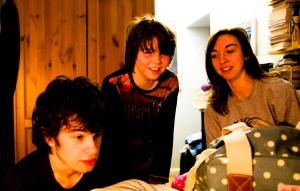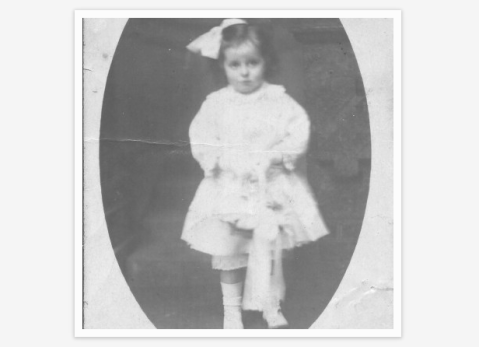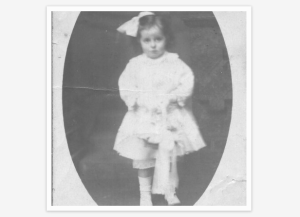This blog post, on the eve of the Private Members’ Bill ballot #PMBBallot makes some suggestions of what to do if your MP wins the golden ticket in tomorrow’s ballot (and some of them might be useful even if they don’t).
Thanks to the unstinting efforts of #JusticeforLB’ers across the country, at the time of writing over half of all MPs (333 out of 650) have been contacted about #LBBill. This is a huge achievement in just over a week, and reflects the entirely crowdsourced nature of the Bill so far.
Our campaigning is far from over though and we need to redouble our efforts at 9am tomorrow, when the ballot for this year’s Private Members’ Bills takes place. The House of Commons twitter account has been highlighting the role of PMBs and using the #PMBBallot all week, so we’re hopeful that they may live tweet it and if you’re online you can watch it on Parliament TV here!
Shortly after 9am we will know the names of the MPs who will have the chance to present a Bill of their choice to Parliament. As explained in a previous blog on the LBBill site we need one of the top six or seven MPs to take #LBBill for it to have a real chance of becoming law.
Therefore we’re asking all of you to check Facebook or Twitter as soon as you can after the ballot tomorrow morning to see if your MP has drawn one of the ‘golden tickets’, that is to see if they came high up in the Private Members Bill ballot.
If they have, then these are some suggestions of things you might do to get your MP’s attention and persuade them to sponsor the #LBBill:
1) Tweet your MP. While this only takes a few seconds our experience so far is that not all MPs engage with their Twitter accounts (indeed some still aren’t on Twitter). So please do this, but don’t just do this! 140 characters is limiting but please try to get across why #LBBill matters.
2) Email your MP. We won’t win any prizes for originality with this suggestion but emails will go straight to the MP’s staff and experience is showing supporters are getting better engagement from emails than tweets. Explain to your MP why #LBBill matters to you.
3) Phone your MP. You can ring the House of Commons switchboard on 020 7219 3000 and ask to be put through to the office of your MP. Be sure to say you are their constituent, you are calling because you know they have been drawn high up in the Private Members Bill ballot and that you would like them to sponsor #LBBill. Explain why the Bill matters from your perspective. If you can’t reach your MP ask for their researcher.
4) Send your MP a letter. Despite being a little bit obsessed with the power of social media to engage with politics, we also love getting post and think your MP may too. Why not dig out your finest writing paper, or dig in to your stash of LBBus postcards and write to your MP. Be sure to do it quick so it reaches your MP before they decide on who to support. If you have children or artists you’re keen to engage, why not send your MP an LB Bus picture too and explain the significance.
5) Go to your MP’s next surgery. All MPs hold surgeries where their constituents can go and discuss local issues with them face to face. Check your MPs website, look in the local press and find out when their next surgery is to be held. Maybe try to get a group of people together to go and see them. If you are going as a group you might want to contact your MP’s constituency office (as opposed to their office in Parliament) and let them know in advance.
6) Go to see your MP in Parliament. If you contact your MP by email or by phone (see 2 and 3 above) you could ask for an appointment to go and see them in Parliament – and perhaps take friends / a local group with you. If you meet in Westminster you may also be able to get a tour round Parliament!
7) Invite your MP to come and meet you. You might like to invite your MP to come and meet you and your family at home, or to come and speak to a local group your involved in. MPs generally want to engage in their local community and it will help convince them of the need for action if they get an insight into people’s real lives.
8) Hold a #JusticeforLB pop-up picnic or party and invite your MP along. The idea for pop-up parties was first shared back in April (see Action 3 in this post) and we’re keen to ensure everyone, regardless of any disability they may have, gets the chance to attend. This is a great chance for a number of people to get together, have fun and meet your MP in an informal setting.
Even if your MP is not a lucky golden ticket holder, their support for the Bill could be key. The more MPs that are aware of the challenges facing disabled people, the origins of the Bill and how it could improve disabled peoples live, the better. The one key element of any action at this stage, is speed.
MPs will be starting to commit to particular causes in the hours and days after the ballot. So please do contact your MP as soon as possible, even if just by a quick tweet, email, letter or call. You can always follow up with something more creative.
Some resources that might help you are:
– The quick guide to the Bill
– The full text of the Bill
– Explanatory notes, which deal with the technical issues
– A film which explains where the Bill came from and what it would do
– A blog from Sara explaining why the Bill would have made a difference to LB
– A blog from Steve explaining why the Bill is needed in the light of the Care Act 2014
You can include links to some or all of these when you contact your MP, but they will definitely need to have the full text of the Bill to hand. You can download it by clicking here: LBBill Draft 2
If your MP has any questions, they can send us an email to LBBillFeedback@gmail.com or tweet us @JusticeforLB and we will arrange for someone from the LBBill Team to call them.
Don’t forget if your MP isn’t chosen at the top of the ballot (a highly likely event) that you can still email or tweet them asking them to contact their colleagues who have been successful in the ballot and support the Bill. Peer pressure is very important!
Finally, there will be thirteen MPs who are picked at 8-20 in the ballot who will get the chance to sponsor a Bill but without any realistic prospect of it having enough Parliamentary time to become law! If we cannot persuade any of the top seven MPs to sponsor the Bill we would be delighted for it to be picked up by any of these MPs as a chance to keep the pressure up. So if your MP is picked in a lower slot please still contact them.
Thanks for your support so far, and for all the work that will follow Thursday’s ballot. Some of you potentially hold the keys to the next stage of making the #LBBill law and are about to have a very important role to play in the campaign! As ever, we could not do this without you, so thank you.





